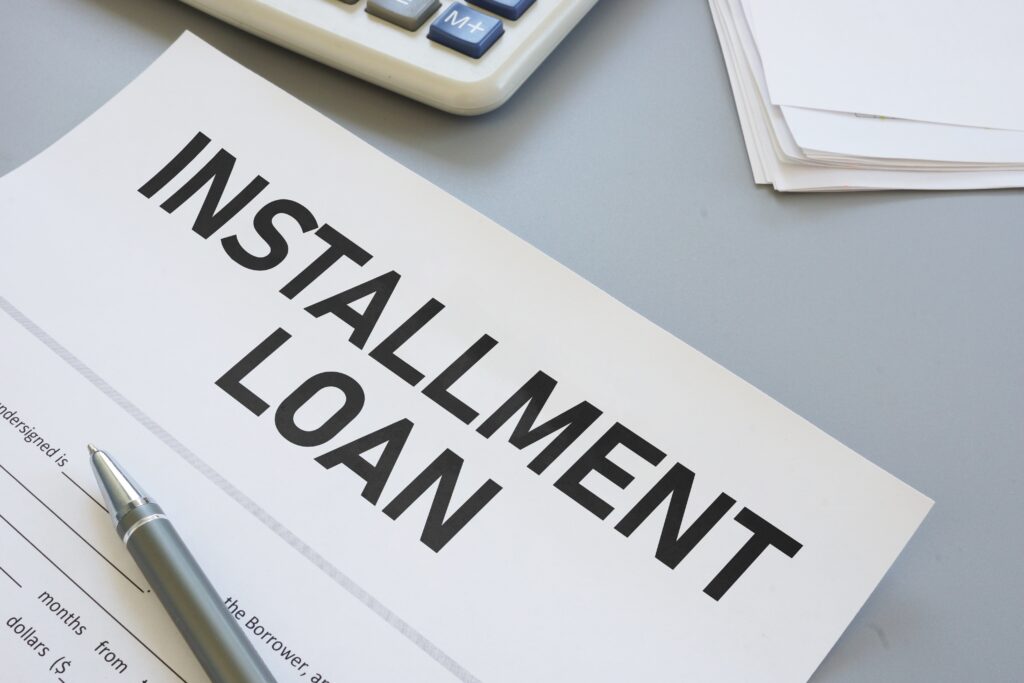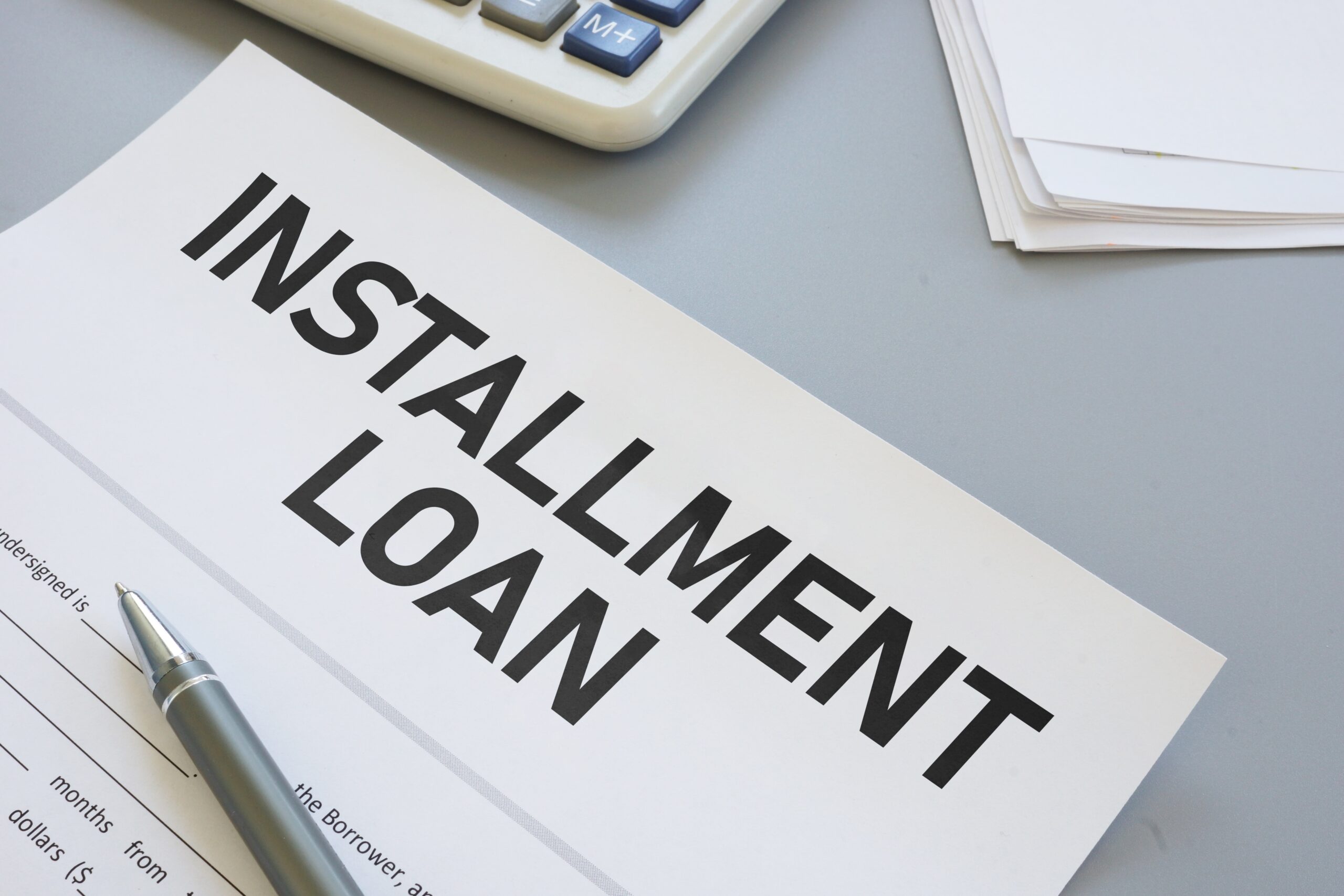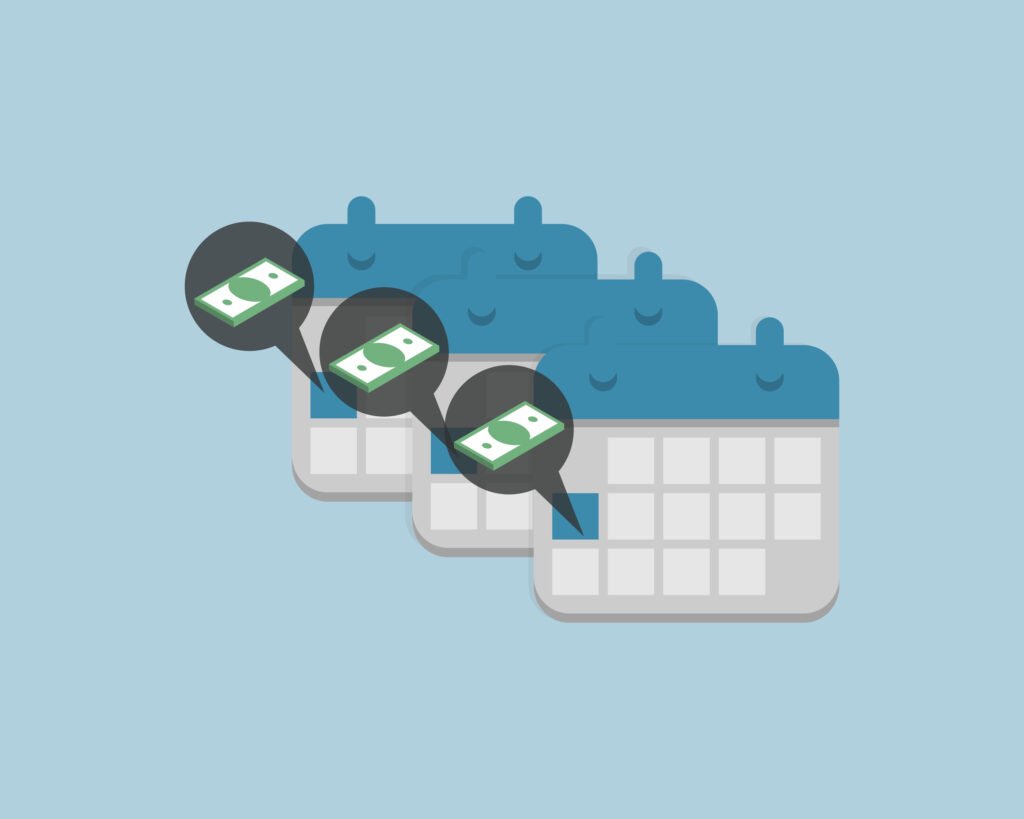
An installment loan is a type of financing repaid through regular, scheduled payments over a set period. Unlike revolving credit, such as credit cards that allow ongoing borrowing up to a limit, installment loans are issued as fixed amounts with defined repayment terms. They are commonly used for substantial purchases or expenses, such as financing a car, buying a home, or covering educational costs. This guide explores how these loans work, reviews common examples, and discusses their advantages and potential drawbacks.
Types of Installment Loans
This category of loans comes in various forms, each tailored to different financial goals and needs. Here are some common examples of installment loans:
Personal Installment Loans
Personal loans are versatile and can be used for debt consolidation, medical expenses, or unexpected costs. Typically unsecured, they don’t require collateral, which may result in higher interest rates to offset the lender’s risk. Personal loans are generally available for various amounts, making them suitable for many financial needs.
Auto Loans
Specifically designed for vehicle purchases, auto loans are secured by the car itself, allowing for lower interest rates compared to unsecured loans. These loans offer fixed terms, usually ranging from five to eight years, and predictable monthly payments, making them a convenient choice for purchasing a car.
Mortgage Loans

Mortgage loans provide long-term financing for home purchases. Secured by the property, they generally offer lower interest rates due to the extended terms, ranging from 15 to 30 years. Mortgages are ideal for buyers seeking stable, long-term financing and are often tailored to fit the borrower’s financial profile, offering fixed or adjustable rates.
Student Loans
Student loans cover educational expenses like tuition, books, and housing. They often come with flexible repayment terms and allow for deferred payments until after graduation, making them a feasible option for students. Both government-backed and private student loans are available, with installment payments structured to make education more accessible.
Debt Consolidation Loans
Debt consolidation options enable borrowers to combine multiple high-interest debts, like credit card balances, into one structured payment plan. This consolidation can streamline finances and potentially lower overall interest costs, simplifying repayment and reducing the monthly burden for borrowers.
Secured Loans
Secured loans require collateral, such as a boat, ATV, or jewelry, which serves as a guarantee for the lender. This setup lowers the lender’s risk, often resulting in lower interest rates while allowing borrowers access to funds by leveraging their assets. Secured loans may be easier to qualify for compared to unsecured options.
Unsecured Personal Loans
Unlike secured options, unsecured loans don’t require collateral and are commonly used for expenses like travel or emergencies. Due to the lack of collateral, these loans generally have slightly higher interest rates and may have stricter qualification requirements for borrowers with limited credit histories.
But How Do Installment Loans Work?

You might still be asking yourself how online installment loans work. These loans consist of three main elements: the principal (amount borrowed), the interest rate, and the loan term (duration of repayment). These factors determine the monthly payments and the overall cost of the loan.
Repayment Structure
Installment loans feature consistent monthly payments, allowing borrowers to budget for repayments over the set term. Each payment covers a portion of both the principal and interest, helping reduce the balance over time. The interest rate, whether fixed or variable, significantly affects the loan’s total cost. Higher rates increase overall repayment amounts, making it essential for borrowers to compare terms and fully understand the effect of interest before committing to a loan.
Pros and Cons
Pros
Predictable Payments
With fixed monthly payments, these loans make budgeting straightforward, allowing borrowers to plan their finances around a stable, predictable amount each month. This predictability can offer peace of mind and a clear path to repayment, particularly for those with fixed incomes.
Access to Larger Loan Amounts
They provide access to larger sums than revolving credit options like credit cards, often with more favorable interest rates. This makes them ideal for significant purchases, such as a home or vehicle, where a lump-sum payment is necessary. The structured repayment also allows for cost-effective financing over time.
Potential Positive Credit Impact
Consistently making on-time payments can improve your credit score, demonstrating responsible debt management to lenders. Unlike credit card debt, which affects your credit utilization ratio, fixed-balance loans decrease with each payment, potentially contributing positively to your credit profile over time.
Cons
Interest Costs and Fees
Interest costs can accumulate over long repayment periods, especially at higher rates. Borrowers should consider the total repayment amount, including interest, to ensure they’re comfortable with the loan’s total cost. For those taking out long-term loans, interest can significantly impact affordability.
Risk of Over-Borrowing
Access to larger loan amounts may tempt some borrowers to take on more debt than necessary, potentially leading to financial strain. To avoid overborrowing, it is essential to borrow only what you can comfortably repay within your income and expense structure.
Potential Credit Impact of Missed Payments
Missing payments can harm your credit score, as lenders report late payments to credit bureaus. Since these loans require the full monthly payment, staying on schedule with repayments is crucial for maintaining a healthy credit standing.
Installment Loans vs. Payday Loans
While both types provide access to funds, installment and payday loans differ substantially in terms of cost and structure. Payday loans are typically small, short-term loans intended for repayment by the next payday. Due to their short repayment periods and high fees, payday loans often carry a significantly higher cost than installment-based options, especially when factoring in the annual percentage rate (APR).
If a payday loan isn’t repaid on time, borrowers may need to roll it over for an additional fee, which can create a cycle of debt. For example, a payday loan of $500 might incur a $75 fee for a two-week term. If the loan is rolled over multiple times, this fee escalates, creating financial strain and making payday loans challenging to repay.
In contrast, structured loans with defined terms offer predictable repayment schedules, with a set term and interest rate, allowing borrowers to spread payments over a longer period. This predictability and lower relative cost make fixed-term loans a more practical choice for those needing manageable, long-term financing.
Apply for an Installment Loan with Wise Loan

Applying for this type of loan involves determining the amount needed, providing information on income and current debts, and undergoing a credit check. Lenders that offer same day funding like Wise Loan use this information to assess creditworthiness and determine the loan’s terms, including the interest rate.
These loans can support larger purchases, debt consolidation, or unexpected expenses. Understanding the loan’s structure, interest rate, and total repayment cost is essential for making a financially sound decision and ensuring you’re prepared to manage payments responsibly. To help with this process, consider applying with Wise Loan today!
The recommendations contained in this article are designed for informational purposes only. Essential Lending DBA Wise Loan does not guarantee the accuracy of the information provided in this article; is not responsible for any errors, omissions, or misrepresentations; and is not responsible for the consequences of any decisions or actions taken as a result of the information provided above.
More information on Installment Loans and how they work in your state:












